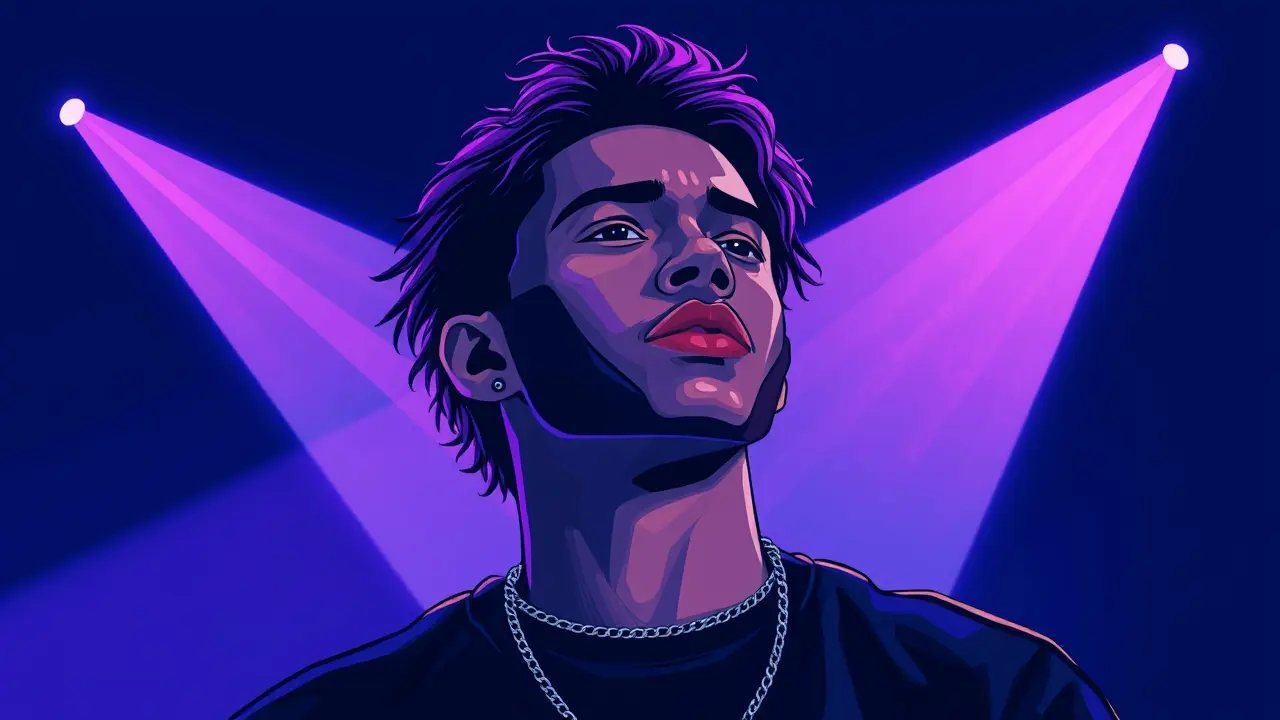Artist Sombr Responds to Body Shaming After Concert Called Cringe
The digital echo chamber had turned its gaze on Sombr, a 20-year-old artist whose recent concert performance became less a celebration of music and more a catalyst for a deeply personal, and painfully public, reckoning. In the stark glow of a smartphone screen, he watched as the clips circulated, not for the melody or the message of his songs, but for the shape of his body moving on stage.‘It’s kind of started a body shaming hate train directed towards me,’ he confessed, a simple statement that belied the complex, gut-wrenching reality of being dissected in the court of online opinion. This wasn't a critique of his art; it was a visceral reaction to his physical form, a phenomenon as old as society itself but amplified to a terrifying volume by the megaphone of social media.To understand this moment is to look beyond the singular artist and into the collective psyche of our time, where the anonymity of a keyboard emboldens a cruelty we would seldom dare express face-to-face. I’ve spent years interviewing people from all walks of life about the contours of their daily existence, and a recurring theme is the chasm between the curated self we project online and the vulnerable, authentic self we protect offline.For performers like Sombr, that chasm doesn't exist; their entire being is the product, and thus, the target. The comments sections and forum threads become a distorted mirror, reflecting not who he is, but the insecurities and unchecked prejudices of the crowd.There's a psychological term for this—the online disinhibition effect—where the normal constraints of social interaction melt away, allowing for what psychologists call ‘toxic disinhibition’ to flourish. People feel less accountable, and the human on the other side of the screen becomes an abstract concept, a collection of pixels to be judged, rather than a person with feelings, fears, and a family.I recall speaking with a high school teacher who described a similar dynamic in her classroom; the same students who would never dream of mocking a classmate's appearance in the hallway would type vicious insults into a group chat without a second thought. This digital dehumanization is the engine of the ‘hate train’ Sombr describes.But what does it say about our culture that a musical performance can be reduced to a single, reductive label: ‘cringe’? The word itself is a social weapon, a quick and efficient way to dismiss someone for failing to conform to an unwritten, ever-shifting set of norms regarding confidence, authenticity, and coolness. When applied to a body, it becomes a particularly insidious form of shaming, suggesting that the very act of inhabiting one's skin in a public space is an embarrassment.This isn't new; we can look back at history and see the same patterns, from the fat-shaming caricatures of 18th-century prints to the relentless scrutiny of Hollywood starlets in the golden age of cinema. The medium has changed, but the message remains hauntingly familiar: your body is a subject for public debate.For a young artist like Sombr, at the very dawn of his career, this onslaught carries profound consequences. Beyond the immediate emotional toll—the anxiety, the self-doubt, the potential for lasting psychological harm—there are tangible professional risks.Booking agents and record labels, whether they admit it or not, often make calculations based on marketability, and a narrative of being ‘cringe’ or the target of widespread mockery can be a difficult shadow to escape. Yet, within this bleak landscape, there is also a counter-movement.We see it in the rise of body-positive influencers, in artists like Lizzo who defiantly celebrate their physicality, and in the communities that rally around figures like Sombr to offer support and push back against the tide of negativity. This digital arena becomes a battleground for the soul of our collective identity.Will we be a culture that tears down, or one that lifts up? The response to Sombr’s experience is a litmus test. His decision to speak out, to label the hate train for what it is, is an act of profound courage.It reclaims the narrative and forces a conversation we desperately need to have. It asks us to look at our own behaviors, our own quick judgments, and our own complicity in a system that too often values appearance over artistry, and cruelty over compassion. The story of Sombr is not just about one concert or one artist; it is a reflection of our ongoing struggle to navigate a world where everyone has a voice, but not everyone remembers the weight of their words.
It’s quiet here...Start the conversation by leaving the first comment.
© 2025 Outpoll Service LTD. All rights reserved.
